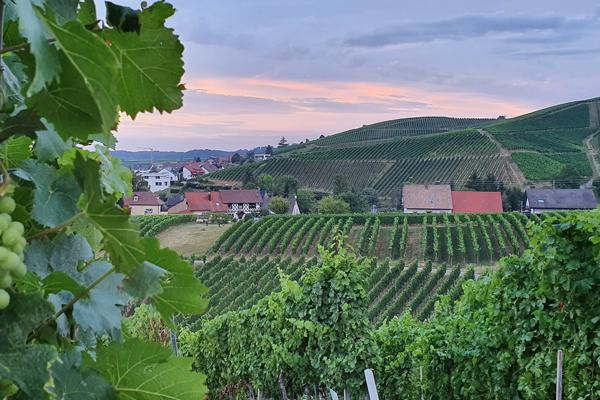A break in the countryside is a breath of fresh air. Away from the bustle of urban life there are so many ways to unwind, so many things to do that give a sense of wellbeing. In the great outdoors, there is a happy place for everyone: from forest bathers to wild swimmers, from canoeists to hikers.
Follow a tour of the vineyards or see olive oil being pressed. Ride a horse through the fields or trek to the local farmhouse for fresh produce. To stargaze or to daydream, the choice is yours.
However, if we want to keep on enjoying majestic mountains, misty lakes and crystal-clear streams, we need to look after our environment. Rural tourism can have negative impacts. It can contribute to climate change, which threatens the countryside through heatwaves, flooding and forest fires.
Rural tourism can also put ecosystems under pressure, causing pollution and generating waste. Who wants a hill walk spoiled by a mountain of litter? Or see more discarded bottles than fish in the river?

Helping tackle plastic waste at source
As high-mountain expeditions and treks to remote areas become more popular, increasing volumes of solid waste are taking over the wilderness. Bottles and wrappers dumped alongside trails make their way into rivers and lakes. This waste could become a health hazard by entering the food chain. Furthermore, it can really spoil our experience of a holiday in the countryside. This is counterproductive for rural tourism, which depends on the beauty of its landscapes and nature sites.
A simple way to help conserve that beauty is the choice to stay in EU Ecolabel tourist accommodation.
Hotels and campsites awarded this label are committed to circular economy principles. They reduce packaging and food waste, reuse cutlery and bedding, and recycle plastics. Such systems to collect and manage waste are a small step towards the litter-free landscapes we all want to see.
Facing up to climate change
Climate change is leading to extreme weather events that threaten the future of rural tourism. In recent years, forest fires have affected regions in central and northern Europe where they used to be rare, and, in 2018, more countries than ever before suffered large fires, coinciding with record droughts and heatwaves.
Frequent and large-scale fires damage the natural environment. They have negative impacts on air and water quality, on biodiversity, soil structure and the way that landscapes look. Rural tourism depends upon a healthy environment and our ability to enjoy it.
Climate change is also increasing the frequency of extreme weather events such as heatwaves, flooding and late frosts. These are having a significant impact on agriculture and the rural landscape. Some crops are no longer suitable to grow in Mediterranean countries. In northern and Eastern parts of Europe, increased risk of early spring and summer heatwaves may negate any crop gains.
Extreme weather creates other problems. For instance, flash floods can put a stop to hiking holidays or kayaking trips. Increased risk of severe drought is a problem for anglers and the leisure fishing industry.
If we want to continue enjoying our preferred country pursuits, we need to reduce global emissions.
Staying in EU Ecolabel tourist accommodation is one simple way to do that. It is part of a set of solutions in the EU Green Deal that contribute to energy savings and go some way towards reducing import dependencies and contributing to increased resilience.
Tourist accommodation that carries the EU Ecolabel uses up to 50% less energy than standard alternatives. The hotels and campsites awarded this label of environment excellence are committed to using energy more wisely. That means obtaining electricity from renewable sources, investing in energy-saving heating, ventilation and air conditioning systems, and more efficient lightbulbs and appliances. Smart savings that actually improve the customer experience.
These green accommodation providers also link guests with local options for sustainable travel, including public transport, bike hire and electric vehicles. That is an important service in rural areas where people often rely on petrol and diesel vehicles.
What is the EU Ecolabel for tourist accommodation?
Recognised across Europe and around the world, the EU Ecolabel is awarded to products and services that meet high environmental standards throughout their life cycle. For tourist accommodation that means complying with a set of strict environmental performance criteria in a range of areas, from waste reduction to water consumption to tackling climate change. Every hotel and campsite awarded this label for environmental excellence meets 22 mandatory criteria and selected optional others. In addition, these green investments can actually make for an even better experience for guests. All of which means that you can look forward to your holiday in total confidence.
Finding EU Ecolabel tourist accommodation is easy. More than 500 hotels and campsites are using the label to improve their environmental performance. The EU Ecolabel Tourist Accommodation website lists all the qualifying businesses by country, with convenient links to the hotels and campsites' own web pages. For more information, please visit the EU Ecolabel Tourist Accommodation website.
